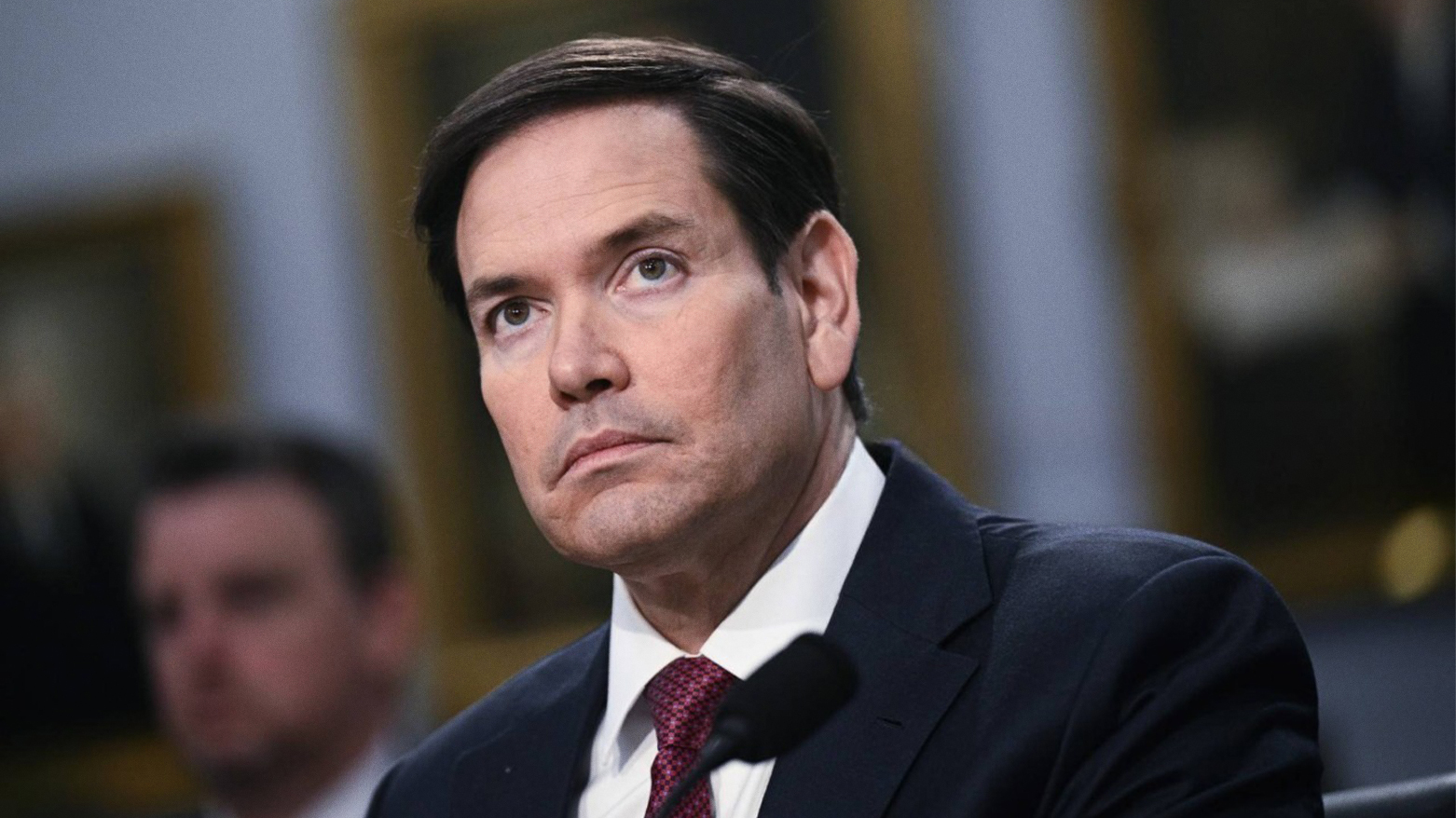Rubio: Iran 'Should Choose the Route of Peace' as U.S. Defends Nuclear Strikes
U.S. Secretary of State Marco Rubio defended the Iran nuclear strikes as “precise” and open to diplomacy. He warned Iran not to retaliate or close the Strait of Hormuz. Rubio stressed Trump’s resolve: “Iran will never get a nuclear weapon.”

By Kamaran Aziz
ERBIL (Kurdistan24) — U.S. Secretary of State and acting National Security Adviser Marco Rubio has defended the Trump administration's recent strike on Iran’s nuclear sites, calling it a "precise mission" that achieved its stated objectives. Speaking to Margaret Brennan on CBS News' Face the Nation on Sunday, June 22, 2025, Rubio emphasized the United States' openness to diplomacy, while warning of severe consequences if Iran retaliates.
Rubio began by stating, “We’ve done everything. We have bent over backwards, okay, to create a deal with these people.” He cited extensive efforts led by Steve Witkoff to negotiate with Iranian intermediaries via Oman, including what Rubio described as a “very generous offer.”
“We're prepared right now. If they call right now and say, we want to meet, let's talk about this. We're prepared to do that. The President's made that clear from the very beginning. His preference is to deal with this issue diplomatically,” he said.
Rubio explained that the military operation targeting Iran’s nuclear infrastructure had clear objectives. “This mission was a very precise mission. It had three objectives, three nuclear sites. It was not an attack on Iran. It was not an attack on the Iranian people. This wasn't a regime change move. This was designed to degrade and, or destroy three nuclear sites related to their nuclear weaponization ambitions.”
When asked by Brennan whether the U.S. had intelligence confirming an order from Iran’s Supreme Leader to begin weaponization, Rubio responded emphatically: “That's irrelevant... They have everything they need to build nuclear weapons.” He pointed to the presence of 60% enriched uranium, buried facilities, and long-range missile development as signs of clear nuclear intentions. “Why would you bury things in a mountain, 300 feet under the ground?... The only countries in the world that have uranium at 60% are countries that have nuclear weapons.”
Rubio further stated, “They have all the elements. They have the delivery mechanisms, they have the enrichment capability, they have the highly enriched uranium that is stored. That’s all we need to see.”
The exchange between Rubio and Brennan grew tense over interpretations of intelligence assessments. While Brennan cited the March public assessment stating that Iran had not made a political decision to pursue nuclear weapons, Rubio countered, “That’s an inaccurate representation... Forget about intelligence. What the IAEA knows [is] they are enriching uranium well beyond anything you need for a civil nuclear program.”
Rubio also discussed the U.S. military presence in the Gulf. “All those bases are there because those countries are afraid that Iran will attack them.” He warned that any Iranian attack on U.S. military bases would provoke a strong response: “We’ll impose costs on Iran if they attack American personnel, whether they do it directly, or whether they do it through some of these proxies that they try to hide behind.”
He added that the administration was prepared to defend the Strait of Hormuz if needed: “Well, I'm not gonna take options away from the president. That's not something we're talking about right now in terms of being immediate. But if they do that, the first people that should be angry about it are the Chinese government, because they take a lot of their oil comes through there. So they should be the first ones that are saying if they mine the Straits of Hormuz, the Chinese are gonna pay a huge price. And every other country in the world is gonna pay a huge price. We will too. It'll have some impact on us. It'll have a lot more impact on the rest of the world. A lot more impact on the rest of the world. There would be a suicidal move on their part because I think the whole world would come against them if they did that.”
Asked whether the U.S. was effectively offering a “lifeline” by proposing negotiations with a regime it has repeatedly condemned, Rubio stated, “You don't have to like the regime... but our national interest is about one thing, and that is Iran not getting anywhere near the capability to weaponize and have nuclear weapons.”
He was clear that regime change was not the administration’s aim: “That's up to the Iranian people if they want to do that, but that's not what we're focused on.”
Rubio confirmed that the U.S. still supports Iran’s right to a civilian nuclear program: “That’s never been an issue... What they don't have a right to do is to enrich it at 60%, hide it under a mountain and develop long range and short range and mid range missiles.”
Regarding the military operation on June 21, Rubio praised its success: “We had three objectives yesterday: Fordow, Natanz and Isfahan. We conducted a brilliant military operation under the command of President Trump… No other military in the world could have done this.”
On the question of nuclear material being moved ahead of the attack, Rubio said, “We don’t, no one will know for sure for days, but I doubt they moved it… Our assessment is… a lot of 60% enriched uranium [was] buried deep under the ground there in Isfahan.”
He reiterated, “These people aren't getting, are never going to get anywhere close to a nuclear weapon, not while Donald Trump is president.”
Rubio concluded with a final message to Iran: “Let’s meet directly. Let’s work on agreements that are good for Iran, good for the Iranian people, good for the safety and security of the world and the United States… We want peace deals with them, and that’s up to them to decide.”
